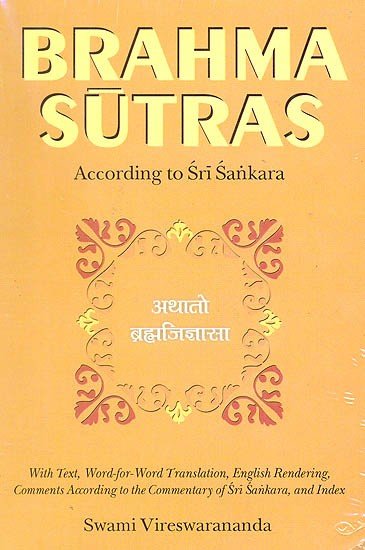Brahma Sutras (Shankara Bhashya)
by Swami Vireshwarananda | 1936 | 124,571 words | ISBN-10: 8175050063
This is the English translation of the Brahma-sutras including the commentary (Bhashya) of Shankara. The Brahma-sutra (or, Vedanta-sutra) is one of the three canonical texts of the Vedanta school of Hindu philosophy and represents an early exposition the Vedantic interpretation of the Upanishads. This edition has the original Sanskrit text, the r...
Chapter II, Section I, Adhikarana XI
Adhikarana summary: Brahman’s creation has no motive behind except a sportive impulse
Brahma-Sutra 2.1.32: Sanskrit text and English translation.
न प्रयोजनवत्त्वात् ॥ ३२ ॥
na prayojanavattvāt || 32 ||
na—Not; prayojanavattvāt—on account of having motive.
32. (Brahman is) not (the creator of the world) on account of (every activity) having a motive.
Granting that Brahman possesses all powers for creation, a further objection is raised against Its being the cause. Nobody engages himself in anything without a motive or purpose. Everything is undertaken by people to satisfy .some desire. But Brahman is self-sufficient, therefore It has nothing to gain by the creation; hence we cannot expect It to engage Itself in such a useless creation. Therefore Brahman cannot be the cause of the world.
Brahma-Sutra 2.1.33: Sanskrit text and English translation.
लोकवत्तु, लीलाकैवल्यम् ॥ ३३ ॥
lokavattu, līlākaivalyam || 33 ||
lokavat—As is seen in the world; tu—but; līlākaivalyam—mere pastime.
33. But (Brahman’s creative activity) is mere pastime, as is seen in the world.
Even as kings without any motive behind are seen to engage in acts for mere pastime, or even as men breathe without a purpose, for it is their very nature, or even as children play out of mere fun, so also Brahman without any purpose engages Itself in creating this world of diversity. This answers the objection raised in the previous Sutra against Brahman’s being the cause of the world.
